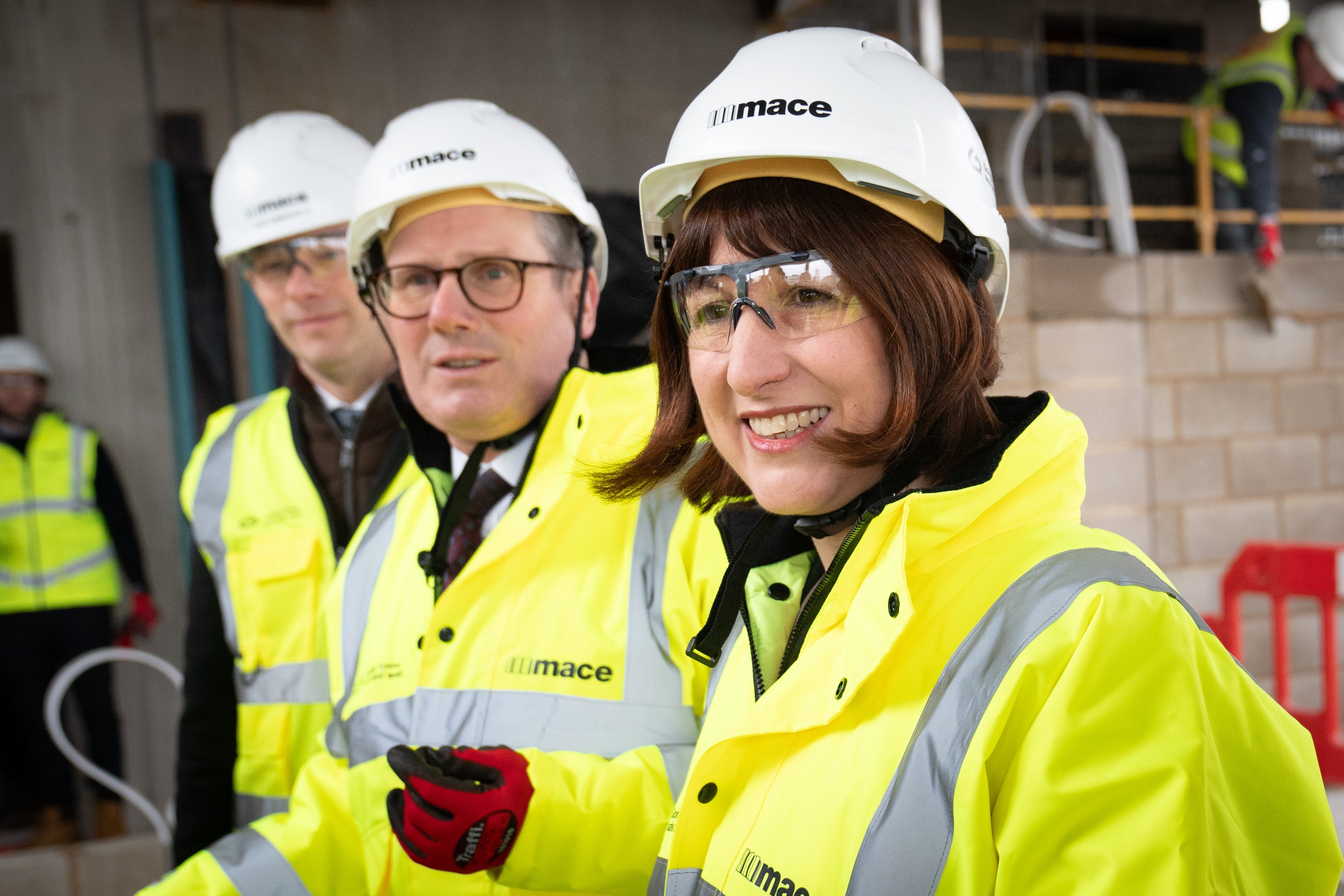Why Labour and Tories won’t talk about the biggest crises facing Britain
An unofficial truce between the Tories and Labour exists on several intractable problems that it suits both to file under ‘too difficult’. But, says Andrew Grice, dodging discussion on social care, defence spending and university funding – among many other topics – will be seen as cowardice by the electorate


Jeremy Hunt has just stolen half the extra money we would raise,” one Labour adviser told me gloomily after the chancellor filched the opposition’s plan to end non-domicile tax status and put the £2.7bn a year raised towards cutting national insurance.
At other times, Labour would have opposed the tax cut as unaffordable, arguing the non-dom revenue would be better spent as Labour envisaged – for example, providing breakfast clubs in every primary school and tackling NHS backlogs. (Labour insiders tell me Rachel Reeves, the shadow chancellor, is confident she can stick to these pledges – probably by closing other tax loopholes or ending “wasteful” spending).
Labour will not oppose the national insurance cut, on the grounds that is exactly what Hunt and Rishi Sunak would like it to do. The chancellor’s move was an elephant trap that could be seen from outer space; Labour was always going to sidestep it. Why give any legitimacy to Tory claims that “we cut taxes, Labour raises them”?
Both parties are so afraid of their own shadow that they play this silly game. In an ideal world, Hunt would map out how the Tories would cut public spending by about £20bn if they retain power. Similarly, Labour would outline the “fair-tax” reforms it would probably implement, which would mean those on high incomes paying more.
Shadow cabinet colleagues can already hear Reeves, in her first major statement as chancellor, saying “the books are even worse than we thought”, and announcing tax increases to rescue our crumbling public services while Labour still has a chance of blaming it on the Tories.
I think Hunt unwittingly made Reeves’s task easier by arguing in his Budget speech that “the way we tax people’s income is particularly unfair” because those in work pay income tax and national insurance, while those relying on “other sources” pay only income tax. Although Reeves has ruled out a “wealth tax”, she could take Hunt’s argument to its logical conclusion by taxing unearned income more. For example, bringing capital gains tax – currently 28 per cent on residential property and 20 per cent for other assets – into line with income tax.
A brave Labour Party would make the case now. I know, I’m playing fantasy politics and it’s not going to happen before the election.
Instead, we have what Paul Johnson, director of the Institute for Fiscal Studies, rightly called a “conspiracy of silence” about post-election tax rises or spending cuts.
In fact, the “too difficult box” is even bigger: there’s an unofficial truce between the Tories and Labour on issues neither wants to talk about.
Social care is off limits, even though its permacrisis adds to the pressure on the NHS. Labour has a plan – a national care service, drawn up by the Labour-affiliated Fabian Society – but doesn’t want the Tories to pin a price tag on it. The related financial crisis in local government will be a major problem, and yet neither party wants to talk about how they would solve it.
The manifestos of both main parties will maintain the £10bn-a-year triple lock on the state pension – even though they know it’s unsustainable, and unlikely to survive another five-year parliament. The state pension age will probably have to be raised, but that’s off-limits, too.
Nor will there be much debate about the UK’s need to boost defence spending in an increasingly dangerous world – even though the budget gap could be up to £29bn, according to Friday’s report by the Commons public accounts committee.
Both parties will avoid talking about a growing cash crisis in our universities. Higher tuition fees, anyone? Not until after the election.
Then there’s the blindingly obvious need for closer trading links with the EU to reduce the damage of Brexit. Labour would sort it in office but won’t advertise it before polling day to avoid handing the Tories more ammunition.
Tory and Labour politicians justify their cowardice by telling me they don’t want to make pledges they can’t deliver, arguing that more broken promises would fuel public disenchantment with politics. Yet they risk just that by not being honest about the hard choices the next government will face, and sticking to the soft options.
Whoever wins will have to deal with all the intractable problems I have listed – and that’s before unexpected events – but they won’t have a proper mandate. Bad for democracy.
True, the parties have an election to win. Labour is 20 points ahead in the opinion polls, so why risk talking about tax rises? The Tories have so few shots in their locker that they had to conjure up a tax cut. If that meant the Budget is a work of fiction, so be it.
It takes two to tango, and no party will move first. Yet they could ensure a more mature debate if they tried. Voters deserve better than two main parties colluding in dishonesty. I think people would be more grown-up about such a debate than our risk-averse politicians imagine.
Join our commenting forum
Join thought-provoking conversations, follow other Independent readers and see their replies
Comments
Bookmark popover
Removed from bookmarks